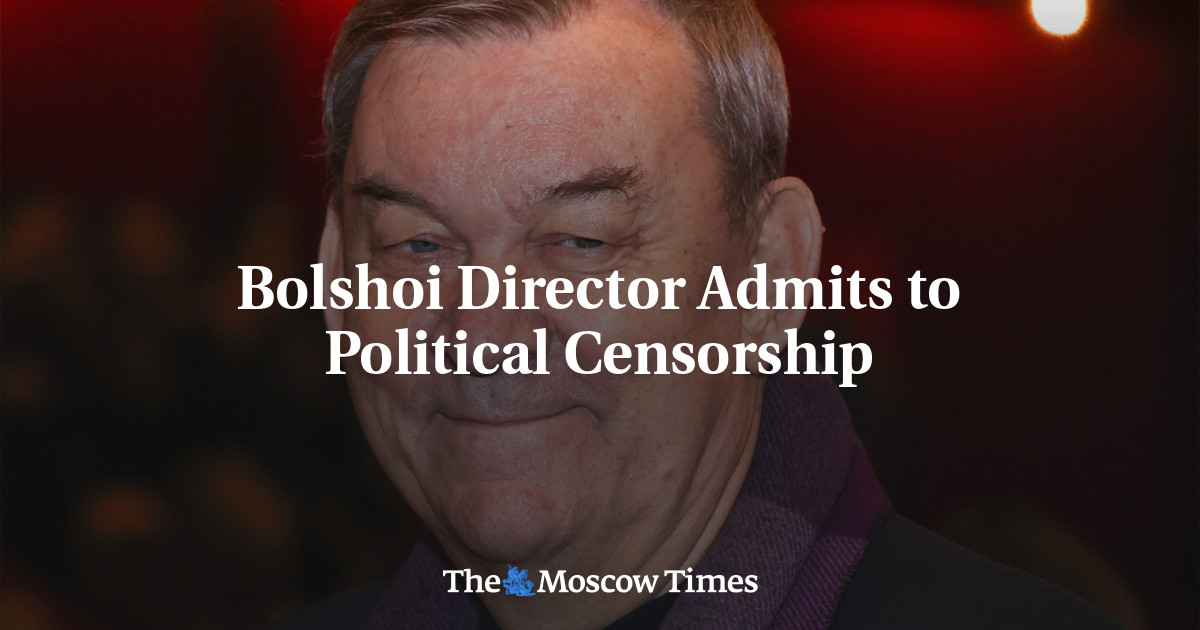
On the eve of the opening of the Bolshoi Theater’s 248th season the theater’s general director, Vladimir Urin, spoke candidly about the theater’s policies and politics in an interview with the government-owned Rossiskaya Gazeta newspaper.
Urin told the newspaper that the “theater remained ‘Bolshoi’ in these difficult times,” but over the course of the interview admitted to a much-diminished repertory. Before “changes in the social-political situation,” he said the Bolshoi was inundated with requests from artists, choreographers and directors to work in Moscow or put on joint productions.
“Now cases when our Western colleagues agree with work with the theater are rare,” he said. And sometimes when a foreigner does come to Moscow to perform, “they ask not to mention their name until the very last minute,” he said.
The repertory of the theater is also undergoing changes, Urin said. The first problem is that many licenses to perform foreign works have expired and “it is not possible to renew them.”
But the second problem “is completely different. It’s when the creators of productions have spoken out very clearly about the Special Operation. In that case, their names disappear from the programs.”
He added, however, that the Bolshoi Theater is a “special case” that attracts attention.
“So it is probably natural when there is an avalanche of outraged letters and other commentary,” which the theater and Culture Ministry understand creates a very “serious negative reaction.”
“That is also a reason for taking certain productions out of our repertory.”
Urin said that theatergoers are more engaged and emotional now. “The emotional response from the audience is completely different — it’s more active. People have a need to express their emotions and inner turmoil.”
When asked about international tours, Urin said that they were not profitable for the theater but had great value “for the image of the theater.” The ballet and opera troupes have had successful runs in China and “is not wanting for invitations” to Shanghai, Oman, and possibly South Korea.
This is quite a different situation than in the pre-war years, when the theater traveled to Western capitals and welcomed joint productions and dozens if not hundreds of artists from around the world.
Urin joined the Bolshoi Theater in 2013 after a highly successful career in several other Moscow theaters. In 2014, he signed a letter of support for the annexation of Crimea and war in Ukraine. Eight years later, he signed a bland petition with other cultural figures that included a call to “everyone on whom it depends, all sides of the conflict, to stop the armed action, and to sit at the table for negotiations. We call for the preservation of the highest value — human life.”
The 2023-24 Bolshoi season opens Thursday with a revival of Leonid Baratov’s 1948 production of Modest Mussorgsky’s “Boris Godunov,” a tale of usurpation of power, guilty conscience, and historical truth.





